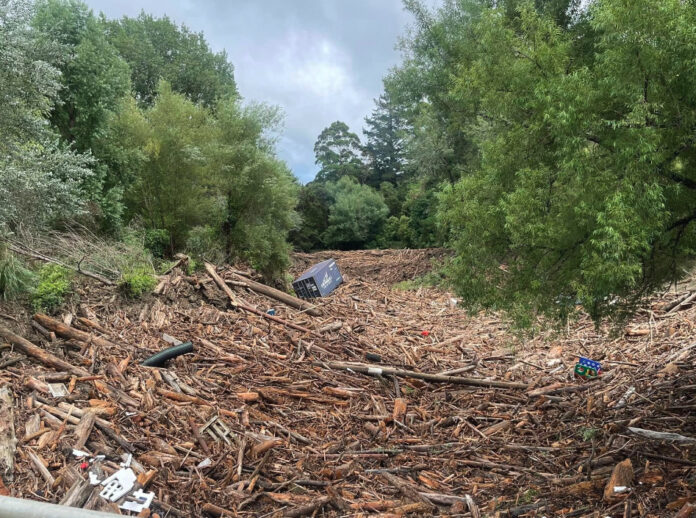The Government has committed $10.15 million from Budget 2023 to support the clean up of slash and debris in Tairāwhiti and Hawke’s Bay and aims to remove up to 70,000 tonnes of woody debris from river and catchment systems.
Forestry Minister, Peeni Henare said debris from forestry in these regions has had a devastating impact on infrastructure, rivers and communities and the fund will go some way to support the clean-up.
“What is clear, and was also highlighted by the Ministerial Inquiry led by Hekia Parata, is that debris must be cleaned up fast to prevent further damage and prepare for any future events,” said Mr Henare.
“I will take time to carefully consider the report in full, but we need to get on with the clean up straight away. My officials will be meeting with councils and reaching out to iwi and community groups to determine what are the priority catchments where infrastructure and communities are most at risk, and how we can best assist.
“I want to make sure that this recovery is one for the whole community. This will involve council, iwi and experts working together closely to prioritise and remove as much woody debris as possible from rivers and catchments to reduce further damage to key infrastructure and communities.”
The Minister said local contractors would be engaged to assist with debris removal, chipping and haulage.
The $10.15 million also includes funding for slash management traps to contain debris from entering waterways in the first place. These are critical short to medium-term measures that will reduce the risk of more infrastructure damage from any further movement in this material during future weather events, Mr Henare said.
He said the Government was also continuing to focus on initiatives that help reduce the impacts of severe weather events by investing $25.2 million over the next four years to protect around 21,000 hectares of hill country farmland across Aotearoa New Zealand.
“Erosion and its effects are estimated to cost New Zealand’s economy more than $250 million a year. Not only does it damage productive farmland but as we have seen from the devastation of Cyclones Hale and Gabrielle it can also have a significant impact on infrastructure and communities further downstream.”
The funding will help 14 councils protect some of the country’s most erosion-prone land and keep productive soils on farms and out of waterways by reducing run-off.
“We are seeing an increase in the frequency and severity of flooding events across the country due to a changing climate and we need more of the right trees in the right places to mitigate against the effects of climate change,” Mr Henare said.



